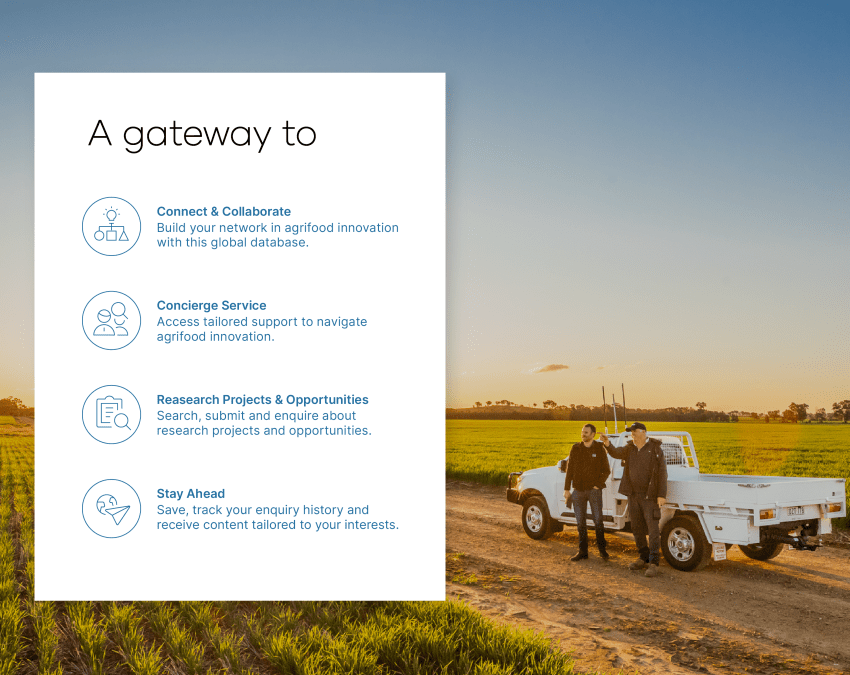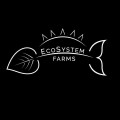
‘Just add gravel and fish:’ EcoSystem Farms’ unique solution to growing a food secure future is now seeking investors
EcoSystem Farms has pioneered a soilless farming platform that symbiotically integrates aquaculture with agriculture – boosting yields across both. With the flexibility to produce all manner of crops and farmed fish, anywhere across the world, the Adelaide-based startup is seeking investors to bring to market a product that could transform the way we grow food.
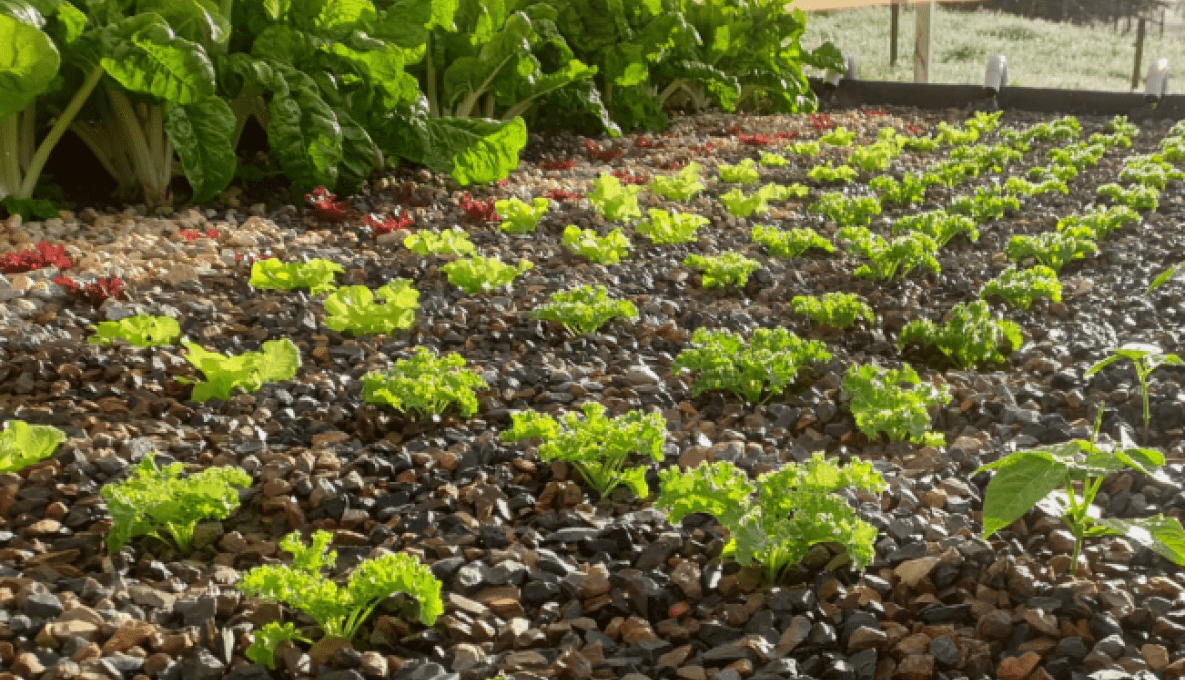
Food insecurity is one of the modern world’s most pressing challenges. Innovators are searching for solutions that will help deliver the 60% increase in food production needed to feed 10 billion people by 2050 – in a changing climate, with scarcer water and land resources, and declining soil health.
EcoSystem Farms is one such innovator. Its revolutionary integrated farming platform grows fish protein and plants in a symbiotic closed loop system that requires no soil, no synthetic fertilisers with a fraction of the land and water of traditional food production systems.
Now, the bootstrapped Adelaide-based startup is on the hunt for impact investors who share their vision for a food secure future.
RELATED: Learn more about Ecosystem Farms investment opportunity^
Symbiotic system where fish and plants work for each other
Related organisations

-crop-672x478.png)
Co-founder and CEO, Brendan Dobson, explained, EcoSystem Farms’ closed loop system flips on its head the way aquaculture is conventionally undertaken. “Discharging wastewater [and drawing down freshwater are key constraints in] conventional land-based aquaculture, so most systems tailor [feed] inputs to achieve the highest fish growth with the least amount of waste,” he explained.
EcoSystem Farms embraces waste, pumping it into gravel beds to be taken up by plants, which filter out nutrients to support their growth. So effective is the filtering process that clean water is returned to the fish in an ongoing cycle. No additives required.
Unlikely though it may seem, gravel is an excellent growing media. “It requires no fallow, doesn’t deplete, and our system allows the plants to retain a constant supply of nutrients,” said Brendan. “You can walk on it, drive machinery over it, and plant and harvest just like you would in soil. It makes our platform a viable scalable option for growing a huge variety of crops, from fruit trees and herbs to salad greens, vegetables and field crops.”
Closed loop system engineers consistent water quality
EcoSystem Farms’ pilot site has 20 media beds – each about the size of a 20-foot shipping container – which currently holds about 6,000 golden perch. It’s enviable stocking density for land-based aquaculture, enabled by the closed loop system which maintains constantly clean water.
“Water is so integral to fish health and the subsequent quality of fish protein,” explained Brendan. “Because our water is constantly clean, we don't have issues with diseases or parasites that [necessitate lower stocking density.] It means we don’t need antibiotics to keep them healthy.”
“And it’s the same in the farming side: because our plants have a constant supply of water and nutrients, they are healthier, too, growing faster and maturing earlier. It means we don’t need fertilisers and pesticides, [so across both systems,] we end up with healthier, cleaner products.”
RELATED: Qponics - How marine algae can help droughtproof agriculture
From bootstrapping to positive cashflow
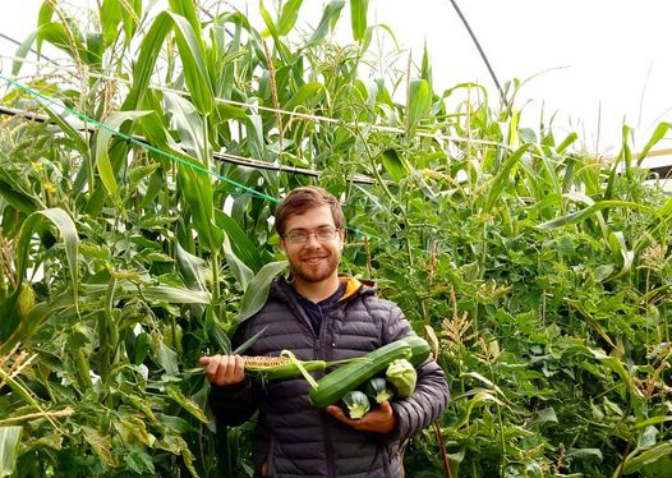
The team has dedicated much of their last five years to trials and testing of both the hardware and production side of the business. “It’s been a slow process,” explained Brendan. “We started out with a prototype in my backyard and have bootstrapped our way through, pulling together what we had, and leveraging what we could. Our current pilot is on a block that we found through a friend of a friend who knew a farmer who was interested,” he added.
“It hasn’t been easy. Our growing periods are around six months, and if we did something wrong in that time, we had to wait another six months to adapt and re-test. But the results prove that it’s been worth the effort.”
Brendan’s trial farm is already turning a profit, and at the yields he is currently achieving, he believes it is within reach for a commercial scale farm (of at least 1 hectare) to be cashflow positive quickly and to be repaid within just a number of years. “We’re looking at a capital cost of $1 million per hectare right now, so they are not cheap systems to establish. But they are robust and low tech, with no moving parts – just gravel to provide structural support for the plants, and pumps that push water up, and gravity bringing it down.”
He continued, “It’s a simple system based on very quick turnover of nutrients. We think that farmers will really understand and value the way it works, and the flexibility it offers them to diversify into high-value crops and proteins.”
In addition to potential profits, EcoSystem Farms’ versatility is a big drawcard. “It can be established almost anywhere, and configured in a huge number of ways to suit a wide variety of crops. And all the pipework is buried underground, so apart from the gravel, it looks just like any other farming system, which means it works with existing experience, technologies, and machinery.”
There’s even scope to use different waste generators. While their initial focus has been on fish, Brendan believes EcoSystem Farms could monetise a wide range of waste management challenges, from feedlots to dairies and piggeries. “We’re actually in talks with a piggery at the moment, who is interested in the concept of using its waste to grow corn or soybeans for fodder.”
Investors sought to expand sustainable aquaculture production
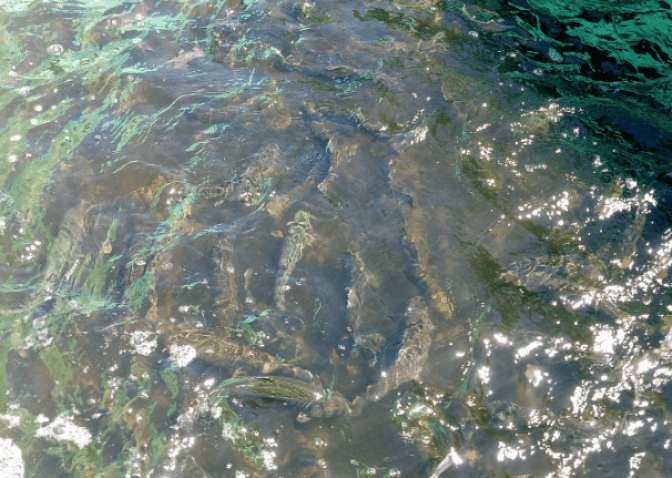
Highly skilled and high stakes, aquaculture is a not an obvious diversification for the average farmer. But EcoSystem Farms makes it achievable. “Because our closed loop system means the water available to fish is always clean, we can upskill any farmer to operate the system. Our business model is based on selling hardware to farmers, and then supporting them with remote monitoring, management and even marketing of their produce, if they want that level of help.”
Brendan noted that he could take the easier road, and focus on scaling EcoSystem Farms as a profitable food production business. “But we got into this game because we knew that the world needs drastic food system change, and we can’t just sit back and expect other people to deliver it. We want to share our technology as widely as we can, to deliver the rapid change the world needs.”
“We’re seeking investors who share that vision; who see $1 million as a good investment in proving up this technology at commercial scale – to show farmers across the world that it’s a viable way to diversify their incomes, turn unproductive land into high value ag land and in the process, transform food production.”
To find out more about EcoSystem Farms’ investment opportunity, click here.
^This investment opportunity is only for professional and sophisticated investors as defined in the Corporations Act 2001 (Cth). The content of this opportunity is intended for use by persons having professional experience in matters relating to investments and must not be acted or relied upon by any other person including, without limitation, retail clients.
-crop-850x675.png)
Looking for engagement?
Showcase your commercialisation opportunity today.
Talk to our team to discuss how growAG. can connect your innovation to industry.
Have questions? Find answers to our most frequently asked questions on research projects, commercial opportunities, organisations and more.
